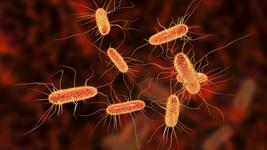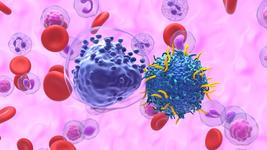Recent Clinical Trial Updates from CRISPR Medicine News
CMN Intelligence - The World’s Most Comprehensive Intelligence Platform for CRISPR-Genomic Medicine and Gene-Editing Clinical Development
Providing market intelligence, data infrastructure, analytics, and reporting services for the global gene-editing sector. Read more...
Epicrispr Biotechnologies doses first patient in first-in-human clinical trial of EPI-321 for facioscapulohumeral muscular dystrophy
Last Tuesday, Epicrispr Biotechnologies announced the first patient dosing in the Phase 1/2 clinical trial of EPI-321, which is being developed to treat facioscapulohumeral muscular dystrophy (FSHD).
FSHD is a progressive, genetic neuromuscular disease that causes skeletal muscular degeneration, leading to severe loss of function. DUX4, whose expression is normally restricted to early embryonic development, is incorrectly reactivated in the muscle cells of individuals with FSHD, leading to progressive muscle degeneration. FSHD Type 1 (FSHD1) is the most common form, accounting for 95% of cases, and is associated with the deletion of a chromosomal tandem repeat, D4Z4, located near the end of chromosome 4.
EPI-321 is an epigenetic modulator designed to silence aberrant expression of DUX4 and thereby address the genetic cause of FSHD. EPI-321's transgene product is a non-cutting, nuclease-dead mini CRISPR-associated protein (dCasONYX) fused with epigenetic modulators. It is designed to selectively bind the D4Z4 repeat region and methylate CpG groups within the region near the DUX4 gene, repressing expression of toxic DUX4 protein. In preclinical FSHD models, EPI-321 showed significant suppression of DUX4 expression and subsequent protection of muscle tissue.
EPI-321 is the first clinical-stage therapy to target the root cause of FSHD, and the ongoing Phase 1/2 clinical trial is evaluating the safety and early efficacy of a single-dose treatment delivered via an AAV vector.
»EPI-321 represents the start of a new chapter where we’re finally evaluating a therapy that targets the underlying cause of FSHD.« said Amber Salzman, Ph.D., Chief Executive Officer, Epicrispr Biotechnologies in this week’s press release. »We’re thrilled to dose our first patient, which is a milestone for our team and more importantly, a sign of hope for patients and families waiting for meaningful treatment options for this progressive neuromuscular disorder.«
FSHD patients sought for first clinical trial testing of EPI-321
Last Thursday, the company announced further recruitment of FSHD patients for the clinical trial.
The study centres in the US and New Zealand are expected to enrol nine individuals aged 18 to 75 with a clinical diagnosis of FSHD1.
Participants will receive a single dose of EPI-321 and will take part in long-term follow-up visits in the clinic for approximately 5 years post-treatment. The primary focus of this trial is to evaluate the safety and efficacy of EPI-321. Initial clinical data are expected early 2026.
See the official press release for further details on the first patient dosed in the redePHine studyEPI-321.
Arbor Biotechnologies announces first patient dosed at Mayo Clinic in the redePHine Phase 1/2 study of ABO-101, an investigational gene-editing treatment for primary hyperoxaluria type 1
Earlier this month Arbor Biotechnologies announced the first patient dosing of ABO-101, an investigational CRISPR-based gene-editing therapy designed to disrupt expression of the HAO1 gene in individuals with primary hyperoxaluria type 1 (PH1).
PH1 is a rare genetic disorder in which the liver produces excessive amounts of oxalate, a substance that can combine with calcium to form kidney stones and cause progressive kidney damage. The disease is caused by mutations in the AGXT gene that leads to liver enzyme deficiency, resulting in oxalate overproduction.
ABO-101 aims to reduce the accumulation of oxalate by inhibiting glycolate oxidase, an enzyme, encoded by the HAO1 gene, that is crucial for oxalate synthesis. By targeting HAO1 rather than AGXT, the therapy may benefit a broader range of patients, as PH1 can result from numerous distinct mutations in AGXT.
ABO-101 is a one-time investigational gene-editing therapy designed to target HAO1, resulting in a permanent loss of function in liver cells and subsequent reduction of disease-associated oxalate production. The company uses a proprietary AI and machine learning-driven discovery engine to identify and refine genome-editing technologies. This approach has led to a platform capable of achieving efficient gene knockouts with nucleases that generate large deletion patterns, as well as compact Cas effectors designed to fit seamlessly into AAV delivery systems. ABO-101 consists of a LNP mRNA expressing a novel Type V CRISPR Cas12i2 nuclease and an optimised guide RNA which specifically targets the human HAO1 gene.
»Preclinical data support the potential for ABO-101 to be a one-time therapy for patients living with PH1, who currently rely on lifelong medication, such as siRNA therapies, and for whom historically the only long-lasting treatment option was a combined liver and kidney transplant,« said Dan Ory, MD, Chief Medical Officer of Arbor Biotechnologies in the company’s press release. »As Arbor’s first clinical trial, this study marks an important milestone in our commitment to advancing innovative genetic medicines into the clinic for people living with PH1 and other rare genetic diseases.«
The redePHine study is a Phase 1/2, dose escalation study to evaluate safety, tolerability, pharmacokinetics, pharmacodynamics and preliminary efficacy of a single dose of ABO-101. The trial is being conducted at the Mayo Clinic under the direction of Dr John Lieske and is expected to enrol globally with plans to open additional test centres in the UK and Europe in 2025.
ABO-101 was well tolerated with no serious adverse events reported in the 28-days following dosing
Following the announcement that the first patient was dosed at Mayo Clinic, no serious adverse events were reported in the 28-day dose-limiting toxicity period following dosing, and the safety board recommended continuation of dosing.
ABO-101 has been granted Orphan Drug Designation (ODD) and Rare Paediatric Disease Designation (RPDD) by the US FDA for the treatment of PH1. The study was approved through a newly established accelerated activation pathway for high-impact clinical trials.
See the official press release for further details on the first patient dosed in the redePHine study.
Stay tuned for more updates
We will continue to update you on EPI-321and ABO-101 as new details emerge. In the meantime, you can find all of our coverage on clinical-stage gene editing programmes here.
For a complete overview of current gene editing clinical trials, check out CRISPR Medicine News' Clinical Trials Database.
Billie Pang is a computational biologist and science writer/communicator based in Dublin, Ireland.
To get more CRISPR Medicine News delivered to your inbox, sign up to the free weekly CMN Newsletter here.
Tags
ArticleNewsClinical News UpdatesFacioscapulohumeral muscular dystrophy (FSHD)Primary hyperoxaluria (PH)Arbor BiotechnologiesEpicrispr Biotechnologies
CLINICAL TRIALS
Sponsors:
Base Therapeutics (Shanghai) Co., Ltd.
Sponsors:
Base Therapeutics (Shanghai) Co., Ltd.







